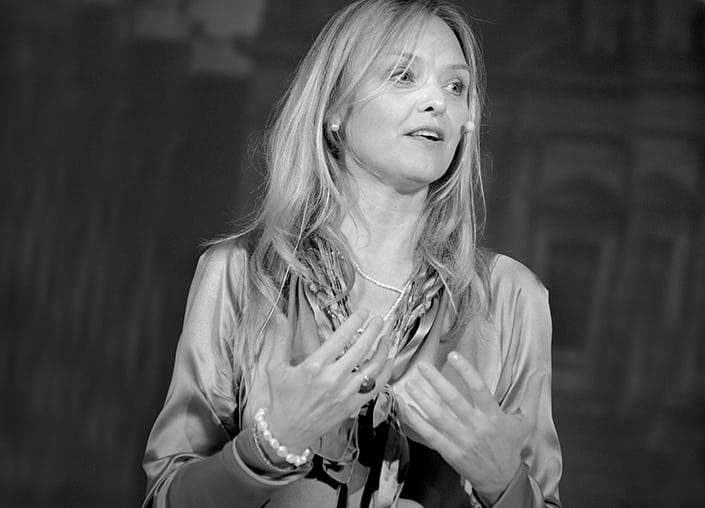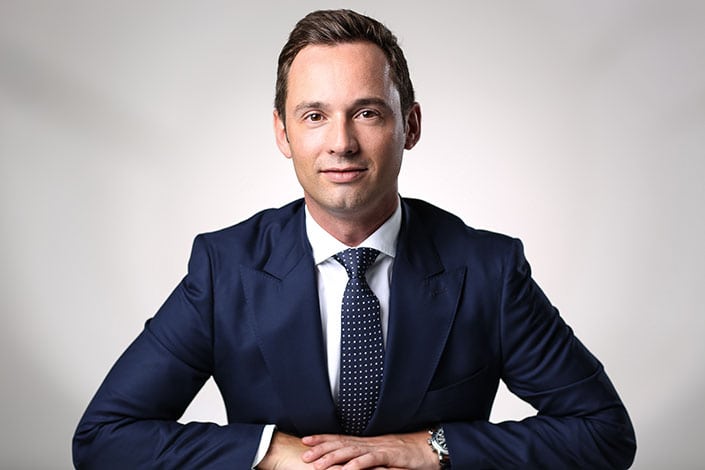Bridging the Gap
Share

It’s all about diversity and inclusion in the corporate workplace in 2018. CEO Insight talks to Kristin Engvig, the founder of WIN, Women’s International Networking, as she shares her vision on female empowerment and how best to align the gender gap.
CEO Insight: These are momentous times for women’s empowerment. Is this in some way connected with the anger around the Trump administration, which many had feared would see this progress slip?
Kristin Engvig: In some ways Trump has facilitated for this discourse to reach the masses, triggering something huge. People have been fighting for women’s rights, inclusion and diversity for decades, but since Trump, more and more people have started to react. Women are speaking up with the MeToo and TimesUp movements and they are back marching on the street. With this continuing momentum we have reached tipping point, and people are ready to listen. Women who kept quiet before because they felt unsafe are now reaching critical mass because of the current fears around losing more freedom. At WIN we advocate, instead of being against something, be for what you really want, and with gender being so prevalent in the media, now is the time to start making things happen. It is not always easy to change but we must help transform this dialogue into action.
CEO Insight: What is the impact on ROI of increasing female representation in the boardroom?
Kristin Engvig: Many organisations are currently putting innovation at the forefront and to do this they know they need to adapt. Organisations that are more inclusive, those that allow everyone to excel, essentially do better. Research tells us that there is a strong correlation between innovation and inclusion because in an inclusive organisation people feel safe to speak up and share. More women bringing ideas to the boardroom can bring about better innovation with different ways of doing things. Recent research has shown that with higher numbers of women in executive positions; you see better economic performance in the business. Firstly, we need to get more women in so they are not so alone, secondly, flexible ways of working need to be made available and thirdly, there needs to be more projects with more meaning so women can thrive and won’t leave the organisation.
CEO Insight: Tell me about WIN’s collaboration with major influential corporate interests, such as Nestle and Honeywell and the nature of WIN’s work to create a culture of collaboration and co-operation with men?
Kristin Engvig: It started up as sponsorship where we asked them to support our work to help empower women in the world, but then it transpired these companies also needed assistance to develop female career paths. They wanted to see more women at the top because it’s good for innovation, it’s good for performance, it’s good for profit, it’s good for everything. They wanted to integrate more feminine values, and we have our agenda, which is truly committed to what is best for women. Some organisations, more than others, still have a patriarchal way of organising themselves and this is not always easy. The commitment we have is, number one, to women, and then to a better world. We must work on accepting the values of both women and men, working in partnership and become more accustomed to seeing women in charge.
CEO Insight: Which organisations and sectors are not just embracing, but actively pioneering and driving these shifts to become corporate models for others, recognising that women are not a niche market but a huge under tapped business opportunity? Which have the most to do?
Kristin Engvig: It’s interesting because even a company like Shell that is in the very male dominated oil and gas sector, has done a lot of good work and facilitated women in their workforce. Likewise, Unilever, the food and consumer products giant, has a very enlightened CEO who has sought to focus on gender balance and sustainability. Sodexo and HP are also trying and making an impact. We see that things happen much quicker in companies when the CEOs want to scale these important issues rather than in the organisations where the changes are coming from the grassroots and employees have to lobby from the inside to get noticed. In the financial sector there is still progress to be made, with lots of women in the lower levels, but very few at the top.

CEO Insight: How do you advocate making the beginnings of a gender revolution wholly inclusive and sustainable?
Kristin Engvig: All this hype is great but how do we keep it up? I think the main thing is that it has to be well funded. I have seen over the years numerous women’s organisations and advocacy groups falter if they don’t have the financial backing. We also need to be aware that things take time and we must stay alert and vigilant so we don’t lose the rights that we already have. We must make sure the discourse stays topical and is talked about in schools, in companies and becomes embedded in the corporate culture, in practices and procedures. It has to become part of the way we do things because otherwise it is just not sustainable. WIN is hosting an event on the 2nd March in Geneva called ‘Creating an Inclusive Organisation: Accelerating Change – Inclusion and Innovation in Action’. Events such as these, advocating authenticity and showing how we can create open and inclusive organisations, allow the important issues to be kept in the public eye.
CEO Insight: How can organisations ensure they take consumers, shareholders, employees and the board with them on this journey?
Kristin Engvig: To do this we have to start with the leaders and those that hold the responsibility for including thoughts and ideas in the business. Everything is interconnected and you have to have a big, bold vision that everyone can associate with and be a part of. There must also be something there that inspires – then it is possible to get everybody on board. Organisations need to be authentic; they really, really need to mean it and this isn’t always easy. For example, if you are saying to your employees that you care about gender balance but you are simultaneously buying from organisations that don’t hold this belief, then the message gets confused. There must be clear communication to improve organisations, innovate and stay competitive and companies must hold and maintain a comprehensive and coherent point of view.
For more information:
2018 WIN Corporate Program
2 March, Thomson Reuters
Innovation & Inclusion in Action

























